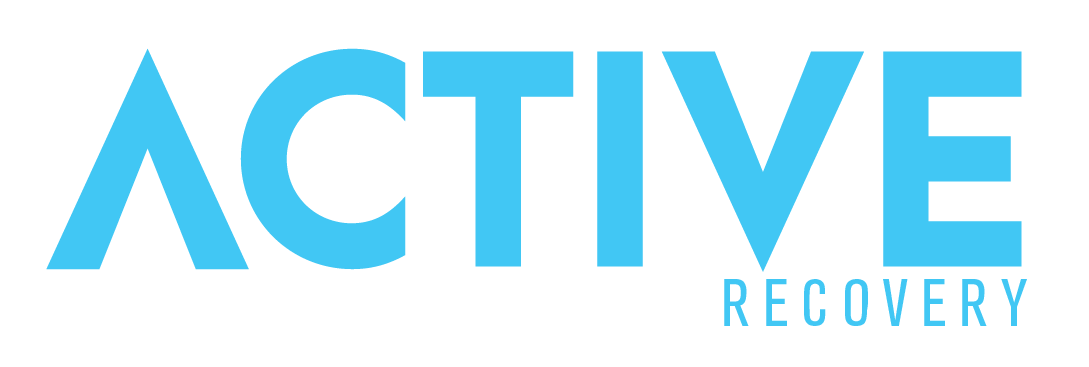Last Updated on December 14, 2023


One of the most common problems in AA is not knowing where to draw the line. While it can be challenging, setting healthy AA sponsor boundaries is what makes a sponsor-sponsee relationship a success!
As a provider of elite sober services, Active Recovery Companions understands the importance of healthy boundary-setting. Looking for tips? Reach out to us, and let's make sure your path to recovery is as clear and supported as possible.
Think of the sponsorship relationship in AA (Alcoholics Anonymous) as a special friendship. Just like in any good friendship, rules are needed to help everyone feel safe and happy. In this case, it's helping each other stay strong and sober.
When AA sponsors set boundaries, they need to draw a safe circle around both themselves and the person they're helping.
This boundary serves to keep out any factors that might complicate or strain the relationship.
Boundaries make sure that the focus is on getting better and taking care of mental health. A good sponsor recognizes this, and helps to create a space where both can grow without unnecessary concerns.
By setting healthy boundaries, sponsors can support their sponsee effectively while taking care of themselves too.
Let's explore what is acceptable and what is not, starting with:
[add verbiage - example - Maintaining privacy and trust by not sharing personal information discussed in the sponsorship outside of that relationship.]
When someone is on a recovery journey, they often divulge deeply personal information to their sponsor, sharing their feelings, challenges, and past experiences. The sponsor must promise to keep all of these secrets safe.
In the sponsor-sponsee relationship, think of confidentiality as a super-important promise.
This trust serves as a powerful glue that strengthens and preserves the closeness and uniqueness of the relationship.
This confidentiality helps the sponsee feel safe to share their heart knowing their words won't be told to others. Similar to 12-step meetings, everything shared in these conversations should stay private.
[add verbiage - example - The primary goal of the relationship is to support the sponsee's recovery. Discussions and activities should primarily relate to sobriety and the steps of the AA program.]
The primary goal of a good sponsor is to help the sponsee stay sober, lead them through the 12 steps, and take care of their mental health.
The sponsor's role is to engage in discussions and activities that relate to the sponsee's recovery. Every conversation and interaction should revolve around supporting the sponsee in staying on the right track.
[add verbiage - example - Sponsors generally do not lend money or provide significant material assistance to their sponsees, as this can create dependency and complicate the relationship.]
Sponsors in AA should be considered as a coach, not a source of financial assistance.
Their role is to guide the sponsee on their sobriety journey, not to provide them with money or purchase costly items for them.
But why is this the case?
If a sponsor begins to lend money or offer material things, it can blur the boundaries and potentially complicate the relationship.
Think of it like if a teacher suddenly started giving money to a student – it would be quite unusual, wouldn't it? Sponsors are primarily there for emotional support, to lend an ear, and to offer guidance, not to cover expenses.
The focus should remain on staying sober, not on money or gifts.
[add verbiage - example - Engaging in romantic or sexual relationships between sponsors and sponsees is strongly discouraged, as it can detract from the focus on recovery and lead to emotional complications.]
AA literature and experienced sponsors agree on one critical rule: No romantic or sexual relationships between sponsors and sponsees. It's worth underscoring the significance of this rule, and this is often why it's suggested to refrain from having a sponsor of the opposite sex.
A romantic or sexual relationship between a sponsor and a sponsee can cause a lot of emotional turmoil. Combining these two things typically doesn't turn out well.
The main goal of the sponsorship is to focus on recovery, and these kinds of relationships can detract from that. It can make things more complicated and take away from the real purpose of the relationship, which is to support sobriety and personal growth.
It's best to keep things professional, supportive, and without romance.
[add verbiage - example - Both parties should respect each other’s time and personal space. This means setting clear expectations about when and how they will communicate (e.g., phone calls, meetings).]
Both the sponsor and the sponsee must understand and agree on when and how they'll communicate.
This way, everyone involved knows when to expect the communication and can plan their schedule accordingly.
Giving respect for each other's time and personal space helps keep the relationship healthy and focused, preventing either person from feeling overwhelmed or intruded upon.
[add verbiage - example - The sponsor provides a safe, non-judgmental space for the sponsee to discuss their challenges and progress in recovery.]
We believe that no one should be blamed or shamed. An experienced sponsor knows the importance of providing non-judgmental support.
This means creating a safe space where the sponsee can openly talk about their challenges and progress in recovery without fear of criticism or judgment.
Knowing they can be honest about their experiences and feelings helps the sponsee feel comfortable and secure.
[add verbiage - example - The sponsor should not try to control the sponsee’s life or decisions. The role is to guide and advise, particularly around the AA program, but not to dictate actions.]
Respecting personal boundaries means the sponsor should never try to control the sponsee's life or decisions.
The sponsor's role is to share guidance and advice based on their own experiences, especially around the AA program. However, sponsors mustn't dictate actions or coerce the sponsee into doing something they're not comfortable with.
We say, offer the right support and insight, not impose control. The sponsee should be in charge of their own recovery.
[add verbiage - example - Open and honest communication is key. Both parties should feel comfortable discussing the sponsorship arrangement and any concerns that arise.]
Clear communication is the foundation of a strong sponsor and sponsee relationship.
Being able to talk freely and with transparency will make sure that both individuals are on the same page and can address any issues before they become problems.
[add verbiage - example - Recognizing that recovery is a personal journey and that what works for one person may not work for another.]
Remember, what helps one person might not be the right thing for someone else.
Understand that everyone has their own path, and there are various ways to support sponsees in a way that's just right for them.
Respect each person's individual experience because recovery is not a one-size-fits-all experience.
[add verbiage - example - The sponsor is not a professional therapist and should not provide medical, legal, or professional advice unless they are qualified and it is outside of the AA context.]
Your sponsor isn't a professional therapist.
They're there to offer support based on their own journey in AA, but they shouldn't give medical, legal, or professional advice. They're not a substitute for a professional mental health companion or recovery consultant.
If a sponsor isn't qualified in a certain area, they shouldn't advise on it, especially in serious matters like health or legal issues.
The role of a sponsor is to guide a sponsee through the AA program and provide moral support, not to step into professional shoes they're not equipped for.
Whether you're fulfilling the role of a sponsor or a sponsee, Active Recovery provides top-notch guidance and resources to aid in the many facets of recovery.
With the experience of our team, you can expect to find the right tools and advice to maintain healthy boundaries and foster a supportive sponsorship relationship.
Reach out to us, and together with our recovery coaches, let's make this recovery a success!

© 2023, Active Recovery Companions